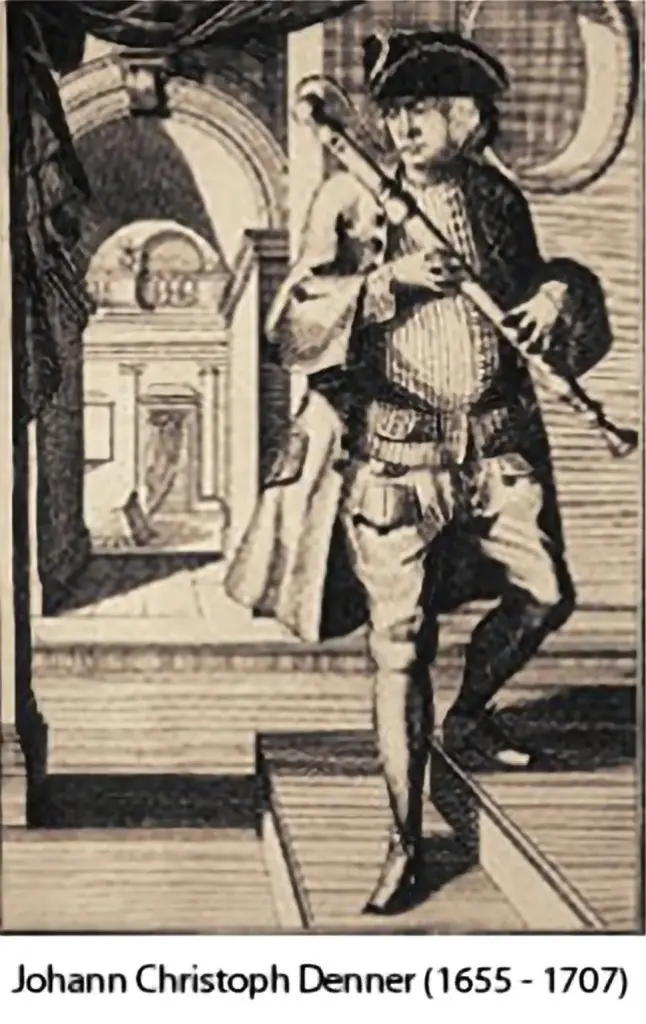
Johann Christoph Denner (1655 – 1707)
Johann Christoph Denner was a pioneering German instrument maker credited with the significant development and invention of the clarinet in the early 18th century.
Early Life and Background
Johann Christoph Denner was born on August 13, 1655, in Leipzig, Germany. He grew up in a family deeply entrenched in the craft of instrument making, with his father, Heinrich Denner, specializing in game whistles and hunting horns. This familial background provided Johann with a rich foundation in the art of instrument construction from an early age.
Career and Innovations
In 1666, Denner and his family moved to Nuremberg, a city renowned for its vibrant craft and trade industries. By 1678, Johann had established his own workshop there. His craftsmanship extended across various woodwind instruments, including oboes and recorders. In 1697, Denner was granted the rights to manufacture French musical instruments, which notably included oboes, enhancing his repertoire and influence in the European musical instrument market.
Invention of the Clarinet
Johann Christoph Denner is best known for his significant contribution to the development of the clarinet, which he invented around the turn of the 18th century, between 1690 and 1700. His innovation involved modifying the chalumeau, a single-reed woodwind instrument, by increasing its range and adding a register key. This adaptation allowed the instrument to produce a richer and more varied tone, ultimately leading to the creation of the clarinet.
Legacy and Impact
Denner’s invention of the clarinet marked a pivotal development in the history of musical instruments, significantly impacting orchestral music and ensemble compositions. The clarinet quickly became a staple in orchestral and solo performances, noted for its versatility and expressive capacity. Denner’s craftsmanship and innovations not only advanced the design of woodwind instruments but also contributed to the evolution of music performance during the Baroque period and beyond.
Personal Life and Death
Johann Christoph Denner passed away on April 20, 1707, in Nuremberg. He was survived by his sons, Jacob and Johann David, who continued their father’s legacy by becoming instrument builders themselves. Today, at least sixty-eight instruments attributed to the Denner family still exist, showcasing the enduring quality and historical importance of their work.
Conclusion
Johann Christoph Denner’s contributions to musical instrument design, particularly his invention of the clarinet, have cemented his legacy as one of the most influential instrument makers of the Baroque era. His work not only enhanced the musical possibilities of his time but also laid the groundwork for future developments in instrument technology and orchestral music.
Birthday of Johann Christoph Denner

